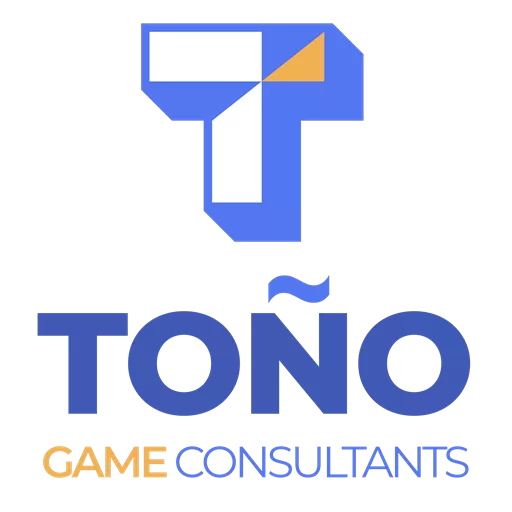Got a game idea buzzing in your head? Whether it’s your very first game or the next in your series, the game development process is always an adventure.
But where do you start, or how do you make your next game even better?
Don’t worry; we’ve got you covered.
Here are 9 essential game development tips (plus one bonus) to help you on your journey. Even if you’re a beginner, a seasoned developer, or just a game fan—these game dev tips and tricks will help you turn your ideas into reality.
Why learn from others when creating a game?
Learning from others saves you time and headaches. One of the best ways to do this is by experimenting early through game prototyping, which helps you spot mistakes before they become expensive.
Plus, getting advice from experienced producers (think about bringing in a game production consultant or project manager) can help you refine your concepts and improve your skills.
In short: studying other developers’ journeys gives you a practical game dev guide without hitting every bump along the way.
Pro game dev tips from Toño Game Consultants
We’ve gathered decades of experience into these beginner game development tips to help you level up your skills. Let’s dive right in.
1. Ideas are nice but useless
A lot of people try to enter this industry, thinking they can be the “idea guy.” Hate to break it to you, but that position doesn’t exist.
Game development is packed with talented people, each bringing their own ideas and expertise to the table. So, you need to offer something special besides just ideas.
Execution is key in this field, and having the skills to bring concepts to life is what really matters.
2. Find different source of inspiration
Truth be told, there are no 100% original ideas. Everything is inspired by something else, the trick is knowing how to shape those influences into something that resonates. Our guide on crafting meaning dives deeper into turning inspiration into experiences that actually connect with players.
We often like things because they have elements of familiarity. This is why something feels intuitive or second nature, it mimics other forms in a way that feels familiar to us.
3. Build paper prototypes
This concept is all about creating a paper prototype, a cheap and quick version of your game. Following a structured approach to game prototyping helps you test mechanics early without burning time or budget.
You don’t need a game engine, programming, or even a computer. Use simple objects or even people to emulate your game in real life or on a table with paper, tokens, dice, etc.
Writing a short rule book for the prototype helps everyone stay on the same page. This step is essential in early game making tips because it validates ideas before investing in tech.
4. Fail fast
Don’t let the fear of your game “not being ready” stop you from showing it to potential players or people outside your development team.
The sooner and more frequently you get your game in front of new players, the more data you’ll gather.
Things that seem obvious to you might not be to most players. People might play in unexpected ways, find shortcuts, bugs, and inconsistencies.
This feedback is valuable for you and your team as it helps you keep improving your game.
Ready to test your own game the smart way?
Before you sink months into building, take our Game Design Quiz. In just a few minutes, you’ll uncover blind spots in your design process and see where your game might need extra attention.
👉 Take the Game Design Quiz now
5. Focus on engine proof
Nowadays, making a game is easier than ever because game engines are free for everyone.
Even with Unity looking for creative ways to monetize and Unreal Engine’s deals with movie studios, game engines remain free for game developers. But that doesn’t mean you should skip engine proof, testing your tools early is what ensures your vision is even possible.
However, many developers think they can skip this crucial step. Testing your game with current technology is vital to see if it’s feasible with your team’s talent and today’s tech.
This helps you and your tech team determine if the engine can smoothly handle everything you want to implement without causing issues.
6. You are your game biggest experts
This concept is simple: you and your development team know your game inside out. You know how to exploit it, avoid obstacles, and break all the puzzles.
Your players won’t have that advantage.
When testing your game, what seems obvious or simple to you might be challenging for players. Instead of assuming something is easy or hard, test it and adjust the balance accordingly.
That’s why one of the best game dev tips for beginners is: don’t assume what feels obvious to you will feel obvious to players
7. Scope is infinite, draw the line
“The scope of your game tends to be infinite, the more you build, the more you want to add.” At some point you have to call it “good enough” for this release. Turn that instinct into a plan: map the journey from prototype to launch, pick the must-ship path, and park the nice-to-haves. Use the story mapping to turn features into a release-ready path and keep scope creep in check. If you’re unsure who owns what vs how, align roles with Scrum Master vs Product Owner so prioritization and delivery don’t work at cross-purposes.
8. Wear many hats
Most of the time, you’ll be working with an indie game studio. You need to be comfortable wearing multiple hats throughout the game’s development.
While you might have a valuable skill set, smaller studios usually start with a small team and may grow as the project progresses.
9. Keep learning from others
Game development never stops evolving. Keep reading, testing, and iterating. Resources like game dev guides or structured courses can help you grow your knowledge beyond trial and error.
Turn Tips Into Real Progress
Knowing the best practices is only half the battle — applying them is what gets games shipped. Whether you’re an indie team or a growing studio, our Game Production Consulting helps you set realistic scopes, avoid crunch, and deliver milestones on time.
👉 Learn more about our Game Production Services
FAQ: Game Development Tips
What are the best game development tips for beginners?
Start small, prototype quickly, and test often. Focus on one mechanic at a time and avoid scope creep.
What’s the difference between game dev tips and a game dev guide?
Tips are quick insights you can apply immediately, while a guide is a structured approach to the full development process. This article is designed to give you both.
Can you make a game without coding?
Yes. Many beginner game developers use no-code tools like GameMaker or Construct. You can also start with paper prototyping before moving to digital.




